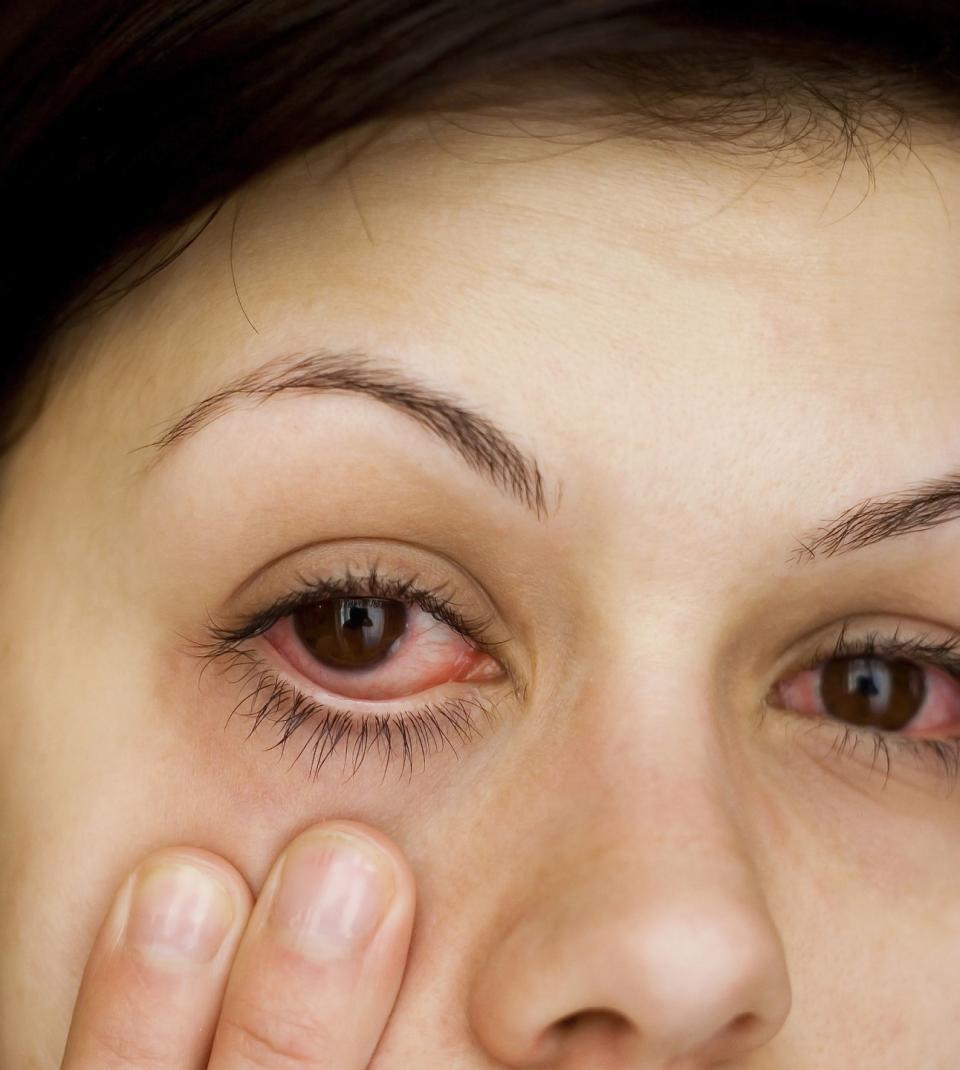Can coronavirus affect your eyesight?

The officially recognised symptoms of coronavirus include a dry cough and a temperature, and more recently a loss of taste and smell. However, anecdotally many others have been shared, including diarrhoea and body aches.
Recently, after Dominic Cummings (a top aide to Boris Johnson) claimed he wasn't breaking lockdown rules and sightseeing after he was spotted by Barnard Castle, but instead was merely testing whether or not his eyesight was okay after experiencing COVID-19 symptoms, many have been left wondering how (or if) the virus can affect your vision.
The Prime Minister also said he'd experienced changes in his eyesight since contracting coronavirus, "On the point about eyesight, I'm finding I have to wear spectacles for the first time in years… so I'm inclined to think that's very, very plausible."
At present, changes to eyesight has not been added to the NHS list of symptoms, but it looks as though it might be possible, according to experts. We asked Dhruvin Patel, an optometrist & Founder of Ocushield LTD, to explain what might happen to your vision if you were to contract coronavirus, and the likelihood of that happening.
"Coronavirus can present itself in the eye," he confirms. "The main disease it can cause is viral conjunctivitis."

"Coronavirus is flu-like and causes a person's viral upper respiratory tract to become infected," Patel explains. Tear ducts (which are like tiny tunnels that sit near the inside of the eye) are part of the drainage system that goes from your eyes to your throat – and because they're closely linked, viruses such as the flu or coronavirus can cause pink eye by travelling through the tear duct from the nose to the eye.
However, it doesn't sound as though this is especially common. "I wouldn't expect this to be a common occurrence, the statistics currently are showing 1 in 100 people who have coronavirus may get conjunctivitis.”
And what exactly is conjunctivitis? Patel says it's the inflammation or swelling of the conjunctiva, the thin transparent layer of tissue that lines the inner surface of the eyelid and covers the white part of the eye. Viral conjunctivitis symptoms include watery red eyes and can last for up to three weeks.
"In most cases viral conjunctivitis does not affect your vision but in rare instances, you might notice your vision becomes blurry or you may see glare when looking at lights," adds Patel. "It is important to note, in the absence of any other flu-like symptoms such as fever and persistent cough it is unlikely you have coronavirus."

Patel's advice is to not panic if you experience any of the above-mentioned symptoms of the eye without any other issues, as this may just be a normal eye infection. "If you're suffering with flu-like symptoms, then please follow NHS guidelines to isolate, get yourself tested and seek further medical help."
Equally as important, he's keen to stress, is avoiding contact with others after touching your eyes. "There may be viral particles in your tears which can be transferred to others and thus transmitting coronavirus to another."
Like this article? Sign up to our newsletter to get more articles like this delivered straight to your inbox.
You Might Also Like


